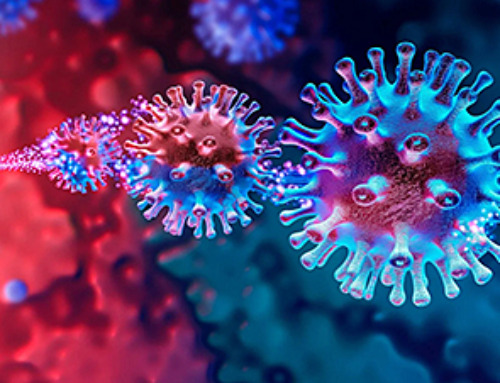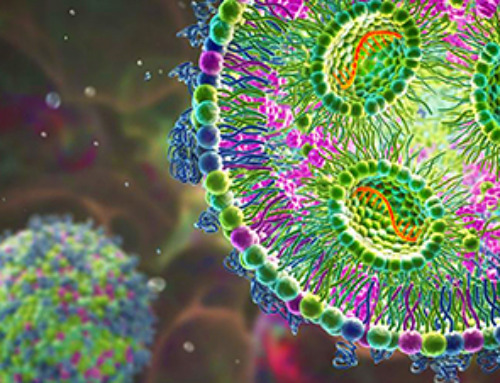Research into the causes of Alzheimer's is not yet complete. Now a new study shows that head trauma can activate herpes viruses and promote the disease.
Frankfurt am Main – As a neurodegenerative disease, dementia often causes a lot of suffering for those affected and their relatives. While short-term memory and memory are initially impaired, dementia often progresses in such a way that it also deprives those affected of content imprinted in their long-term memory. In the course of the disease, those affected lose more and more of what they have learned, until in the course of a severe course of dementia there can even be a complete loss of perception. This is often accompanied by an increased level of care and need for care of those affected.
As an umbrella term, dementia includes around 50 clinical pictures that are associated with a reduction in memory and mental performance. Its most common form is Alzheimer's disease, which accounts for around two-thirds of all dementia cases. Although exercise, a balanced diet and mental training can prevent it, there are also a number of risk factors that can promote Alzheimer's. And a recently published British study now suggests a surprising connection for these.
Study shows connection between herpes viruses and head injuries as risk factors for Alzheimer's dementia
The development of Alzheimer's dementia is an important question in research and as such the subject of numerous dementia research studies, but its causes are still not fully understood. One thing is clear: In those affected, nerve cells in the brain deteriorate, which further impair their mental performance and perception over the course of the disease.

At present, Alzheimer's research assumes that deposits of two toxic proteins are largely responsible for the breakdown of nerve cells in those affected: clumps of amyloid-beta and tau fibrils. However, herpes viruses and head injuries, such as concussions in particular, also seem to have a risk of promoting the development of Alzheimer's dementia under certain circumstances.
Head injuries "awaken" herpes viruses – and release proteins that promote Alzheimer's disease
At least this is the central finding of a British study that researchers from the Institute for Population Ageing at the University of Oxford worked out together with members of the Universities of Manchester and Tufts. They published their results in the journal Science Signaling. As the researchers discovered, herpes viruses can survive a lifetime in the human body and lead to the dreaded deposits in the brain if they are "awakened", i.e. reactivated, in a certain way.
Herpes viruses that lie dormant in the body for a long time could be "awakened" by vibrations and injuries to the head, for example, as the scientists pointed out as the next important result of their study in Science Signaling. They reached it by exposing a biotechnologically generated model of human brain tissue to a series of light shocks.
They observed how light shocks activated the dormant herpes viruses. "This reactivation triggered inflammation, the formation of beta-amyloid plaques and the formation of harmful tau proteins," summarized Leslie K. Ferrarelli, who was involved in the study as a researcher. And because these proteins are known to initiate neurodegenerative processes in the brain, including Alzheimer's dementia, Ferarelli adds: "The results establish a direct link between two risk factors in a mechanism that may contribute to dementia."
Head injuries have long been known to science as a risk factor for dementia
While the researchers have now made an important new finding with the connection between head injuries and a reactivation of herpes viruses as the cause of Alzheimer's dementia, effects on the skull have long been identified as a risk factor for dementia. Chronic traumatic encephalopathy (CTE) even exists as a clinical picture that classifies a rare form of dementia: cognitive and motor disorders as well as behavioral and personality changes that occur as a result of regular head injuries.
It was first described by US researchers in the 1920s as "punch drunk syndrome". The reason for the study at that time was a sometimes noticeable limitation of the cognitive performance of professional boxers, who are known to be exposed to a high number of blows to the head during training or competitions.
Because contact sports in particular, and thus numerous team sports such as football or basketball in addition to those from martial arts, offer an increased potential for head injuries, the Alzheimer Research Initiative e.V. association warns on its website to protect the head during sports and to avoid unnecessary vibrations – even minor ones. And not only because there is no therapy for CTE sufferers yet, but because head injuries can also promote Alzheimer's dementia. For this reason, older people are also recommended to exercise increased caution against falls. (FH)
News
COVID-19 still claims more than 100,000 US lives each year
Centers for Disease Control and Prevention researchers report national estimates of 43.6 million COVID-19-associated illnesses and 101,300 deaths in the US during October 2022 to September 2023, plus 33.0 million illnesses and 100,800 deaths [...]
Nanomedicine in 2026: Experts Predict the Year Ahead
Progress in nanomedicine is almost as fast as the science is small. Over the last year, we've seen an abundance of headlines covering medical R&D at the nanoscale: polymer-coated nanoparticles targeting ovarian cancer, Albumin recruiting nanoparticles for [...]
Lipid nanoparticles could unlock access for millions of autoimmune patients
Capstan Therapeutics scientists demonstrate that lipid nanoparticles can engineer CAR T cells within the body without laboratory cell manufacturing and ex vivo expansion. The method using targeted lipid nanoparticles (tLNPs) is designed to deliver [...]
The Brain’s Strange Way of Computing Could Explain Consciousness
Consciousness may emerge not from code, but from the way living brains physically compute. Discussions about consciousness often stall between two deeply rooted viewpoints. One is computational functionalism, which holds that cognition can be [...]
First breathing ‘lung-on-chip’ developed using genetically identical cells
Researchers at the Francis Crick Institute and AlveoliX have developed the first human lung-on-chip model using stem cells taken from only one person. These chips simulate breathing motions and lung disease in an individual, [...]
Cell Membranes May Act Like Tiny Power Generators
Living cells may generate electricity through the natural motion of their membranes. These fast electrical signals could play a role in how cells communicate and sense their surroundings. Scientists have proposed a new theoretical [...]
This Viral RNA Structure Could Lead to a Universal Antiviral Drug
Researchers identify a shared RNA-protein interaction that could lead to broad-spectrum antiviral treatments for enteroviruses. A new study from the University of Maryland, Baltimore County (UMBC), published in Nature Communications, explains how enteroviruses begin reproducing [...]
New study suggests a way to rejuvenate the immune system
Stimulating the liver to produce some of the signals of the thymus can reverse age-related declines in T-cell populations and enhance response to vaccination. As people age, their immune system function declines. T cell [...]
Nerve Damage Can Disrupt Immunity Across the Entire Body
A single nerve injury can quietly reshape the immune system across the entire body. Preclinical research from McGill University suggests that nerve injuries may lead to long-lasting changes in the immune system, and these [...]
Fake Science Is Growing Faster Than Legitimate Research, New Study Warns
New research reveals organized networks linking paper mills, intermediaries, and compromised academic journals Organized scientific fraud is becoming increasingly common, ranging from fabricated research to the buying and selling of authorship and citations, according [...]
Scientists Unlock a New Way to Hear the Brain’s Hidden Language
Scientists can finally hear the brain’s quietest messages—unlocking the hidden code behind how neurons think, decide, and remember. Scientists have created a new protein that can capture the incoming chemical signals received by brain [...]
Does being infected or vaccinated first influence COVID-19 immunity?
A new study analyzing the immune response to COVID-19 in a Catalan cohort of health workers sheds light on an important question: does it matter whether a person was first infected or first vaccinated? [...]
We May Never Know if AI Is Conscious, Says Cambridge Philosopher
As claims about conscious AI grow louder, a Cambridge philosopher argues that we lack the evidence to know whether machines can truly be conscious, let alone morally significant. A philosopher at the University of [...]
AI Helped Scientists Stop a Virus With One Tiny Change
Using AI, researchers identified one tiny molecular interaction that viruses need to infect cells. Disrupting it stopped the virus before infection could begin. Washington State University scientists have uncovered a method to interfere with a key [...]
Deadly Hospital Fungus May Finally Have a Weakness
A deadly, drug-resistant hospital fungus may finally have a weakness—and scientists think they’ve found it. Researchers have identified a genetic process that could open the door to new treatments for a dangerous fungal infection [...]
Fever-Proof Bird Flu Variant Could Fuel the Next Pandemic
Bird flu viruses present a significant risk to humans because they can continue replicating at temperatures higher than a typical fever. Fever is one of the body’s main tools for slowing or stopping viral [...]





















